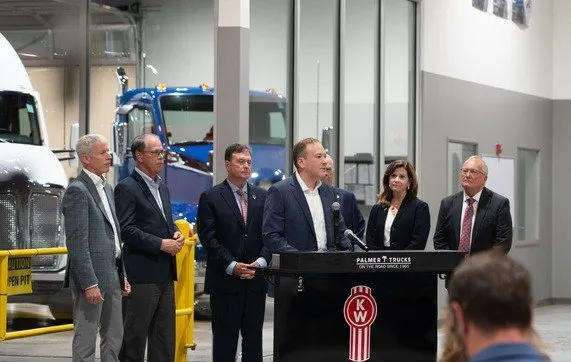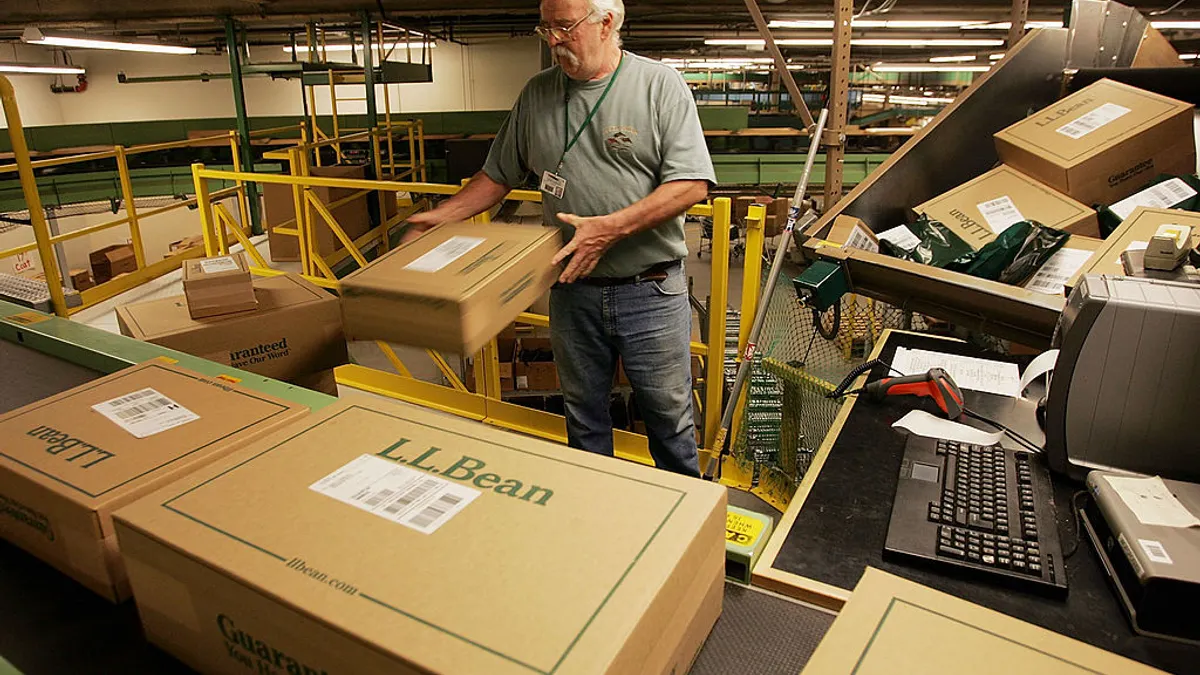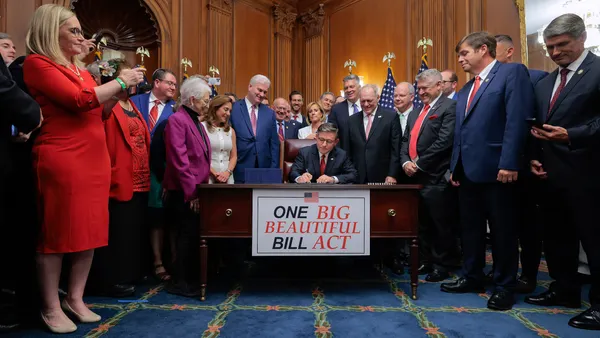The Environmental Protection Agency took aim Tuesday at a scientific finding that set the stage for major greenhouse gas emissions rulemaking for heavy-duty trucks.
The agency said it’s working to rescind an EPA administrator’s decision from 2009 to undo what the Trump administration has called overreaching and costly regulations.
If approved, the policy overhaul under current EPA Administrator Lee Zeldin could lead to the overturning of rules affecting truck and engine manufacturers, a dramatic shift that quickly drew applause from industry advocacy groups.
“The trucking industry supports cleaner, more efficient technologies, but we need policies rooted in real-world conditions,” American Trucking Associations President and CEO Chris Spear said in a statement.
The original scientific finding — which identified electricity generation as the leading sector of greenhouse gas emissions, followed by transportation — has served as a foundation for subsequent regulations, such as tougher requirements for heavy-duty truck manufacturers unveiled last year.

The Clean Freight Coalition, which represents major trucking associations such as the ATA, National Private Truck Council and Truckload Carriers Association, also voiced support for the EPA’s proposed shift.
CFC Executive Director Jim Mullen said the move would be a critical step toward rescinding the heavy-duty greenhouse gas phase three rule from last year.
“The CFC members have consistently opposed the unattainable targets included in this rule that would cause tremendous harm to the trucking industry, jeopardize the supply chain and result in higher prices for goods across our country,” he said in an emailed statement.
Concerns raised for EV, battery plants
But the nonprofit Calstart, which advocates for clean transportation technologies, said the proposal seeks to dismantle vehicle emissions standards for new passenger and heavy-duty vehicles.
“When this proposal goes through, it could very well undermine new EV and battery plant manufacturing investments in Kansas, Indiana, Georgia, Tennessee and the Carolinas,” Calstart President and CEO John Boesel said in a statement. “By rolling back these standards, the EPA is handing the advantage to the oil industry and foreign competitors, further weakening U.S. leadership in the global clean transportation race.”
The existing framework, set by former EPA Administrator Lisa Jackson during the Obama administration, found that six greenhouse gases constitute a threat to public health and welfare. The rulemaking said the pollution causes more severe hurricanes, serious health effects due to adverse air quality, and greater storm surge and flooding risks from rising sea levels in coastal areas.
Next steps
The proposal requires the EPA in rulemaking to make its case for changing the existing framework and accept public comments, a process that could take months or years, a report by the nonpartisan Congressional Research Service noted last month.
The proposed move will also require judicial review, the report said.
The agency may also need to defend its proposal in light of reaffirmations of the existing framework in 2016 and 2022, the report said. But the EPA suggested new evidence will help its case.
“Much has changed since the 2009 Endangerment Finding was issued, including new scientific and technological developments that warrant review,” the EPA said, adding that major Supreme Court decisions have “emphasized that major policy determinations must be made by Congress, not by administrative agencies.”














